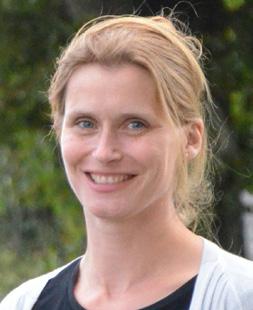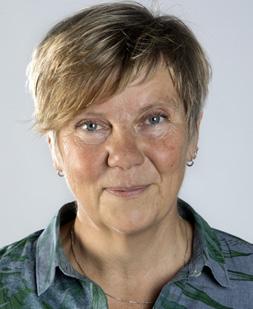
5 minute read
Academic housekeeping mainly for women
The academic women’s trap
Tidying away dishes, organizing the Christmas party, doing the administration for seminars, resolving conflicts ... Some jobs within academia do not contribute to your scientific credentials but they still have to be done. It is called academic housekeeping and mainly affects women.
Advertisement
– DO YOU MEAN ordering goods, managing the lab, making sure there are gloves and that kind of thing? Ingela Dahllöf, Pro Dean of the Faculty of Science, wonders when the GU Journal phones her. She continues: – Of course I’ve done that. It starts as a junior; you want to prove yourself, so you put in a tremendous amount of effort and it is only when it starts to become an unspoken norm that you begin to see the pattern: “Why do I always do this?” It took a few years before I asked myself that question and stopped. But no one else took on those tasks.
INGELA DAHLLÖF’S experience is typical, at least if you are to believe the studies in the field. Sara Kalm, Senior Lecturer in Political Science at Lund University, first came across the term academic housekeeping in American research.
– It highlighted something I had known about for a long time but couldn’t really put into words.
She began to take an interest in the phenomenon and, in conjunction with a course in gender
pedagogy, she took the opportunity to write about it – which led to a well-received article in the journal Sociologisk forskning (Sociological Research) last year.
– THIS TYPE OF non-accredited work is certainly not unique to academia, but what is particular about the university world is the hierarchical structure, and as a young person you have to earn your credentials in certain specific ways in order to get a permanent job in the long term. Therefore, it is important how these housekeeping tasks are allocated because it is done at the expense of academic credentials, which of course provides a strong incentive to avoid it.
Sara Kalm believes that the academic system, as it is structured, favours purposeful, competitive and enterprising behaviour. So you have to be tough, assertive even – something that most people find difficult, but which is particularly problematic for many women.
Petra Angervall, Senior Lecturer at the Department of Education and Special Education, is not only convinced that this is the case, but also claims that academia is not at all a neutral, objective and transparent meritocracy but in fact, just like the corporate world and the world of sports, strongly characterized by values that confirm masculinity. She has researched academic housekeeping herself and refers to international studies.
– WHILE WOMEN TEND to be caught up in what is called low promotability work, men tend to navigate, often with the help of networks, toward the more prestigious positions. They get published faster and progress more quickly in their careers.
The structure is evident at the University of Gothenburg. Petra Angervall cites the female-dominated fields of healthcare sciences and teacher training as examples. – It is mainly women who teach, while a larger proportion of men do research. In educational science, the hierarchy is particularly evident. Most professors are
PETRA ANGERVALL

Sara Kalm

Ingela Dahllöf
Photo: PRIVATE
Photo: JOHAN WINGBORG
hind contributes value that should be given greater recognition, says Petra Angervall.
So does Sara Kalm. At the beginning, she did not see academic housekeeping as a gender issue, but as an equality issue.
– I saw how people in lower positions with lower status were in fact real stalwarts that made organizations work. But they were not rewarded; it involved women as well as men. It was the injustice that got me started. But the more research I have taken part in and the more I have travelled around and shared other people’s stories, the more convinced I have become that there is a gender pattern.
But has it not improved? Last year, for example, more female than male professors were recruited at the University of Gothenburg.
– I think it has got better. There is a greater awareness of this now compared to when I started, and we have become more proficient at dividing housekeeping tasks. But there is still enough for it to be a problem. This is something we have to work on, says Ingela Dahllöf.
men, while women are lecturers. The pattern becomes even more apparent if you break down these numbers and look at the distribution of lecturers. About 80 percent of them are women.
SO WHY IS that the case? Why don’t more female lecturers have an academic career? Why do the careers of female lecturers stall and why do they devote themselves to lecturing?
– Research indicates that women, to some extent, make choices that do not benefit them in their careers. Some do not want to have that kind of pressure and competition, while others say they are expected to make these choices. In my study, one woman commented: “Someone has to stay and run the department when the others are out there earning credentials.” That is like a housewife. “I’ll stay behind, you can go” Staying beSo what happens when the housekeeping is divided up? Are men rewarded in a different way? – You know, I haven’t really thought about that.
Nor had Sara Kalm before she wrote her article. But now, after learning about other women’s experiences, she believes that the social significance of academic work differs depending on who is performing it.
– If a male professor performs this work, it is much more visible. He receives a completely different type of recognition than a young female doctoral student. He does something beyond what is expected and is seen in a much more positive light. That might be considered a little unfair, concludes Sara Kalm.










